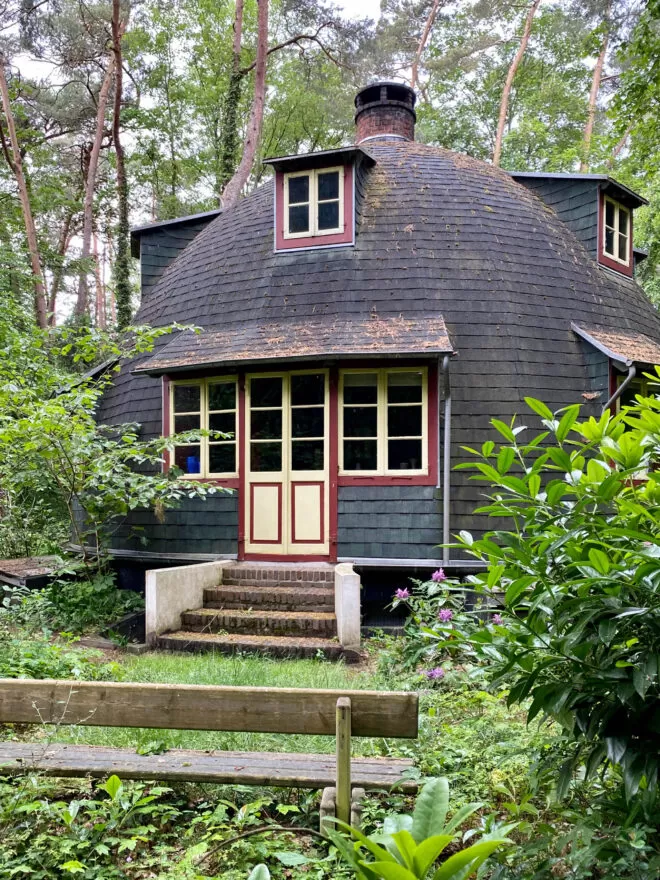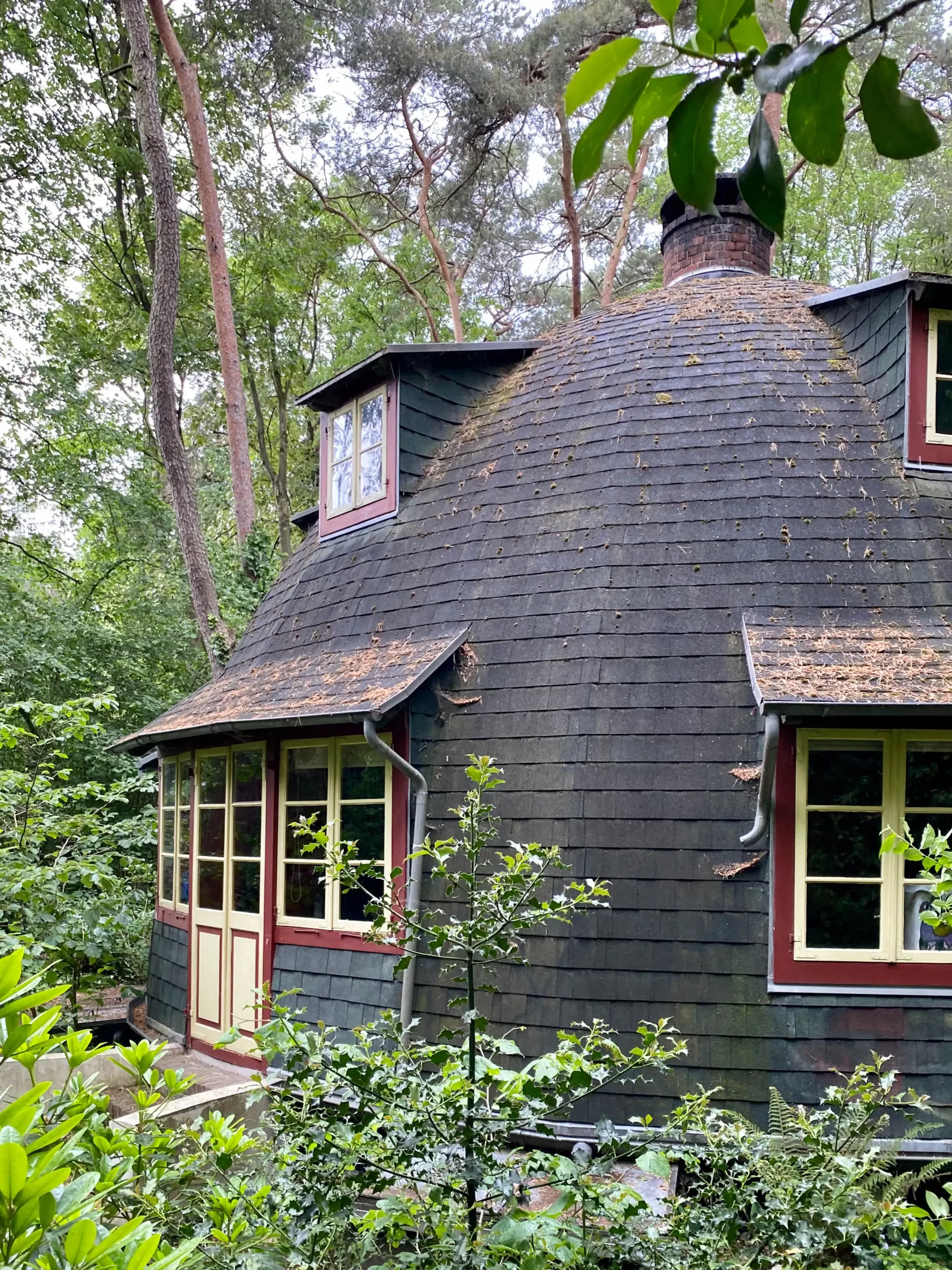
Käseglocke, 1926, built by Edwin Koenemann to a design by Bruno Taut. Photo: Daniela Christmann
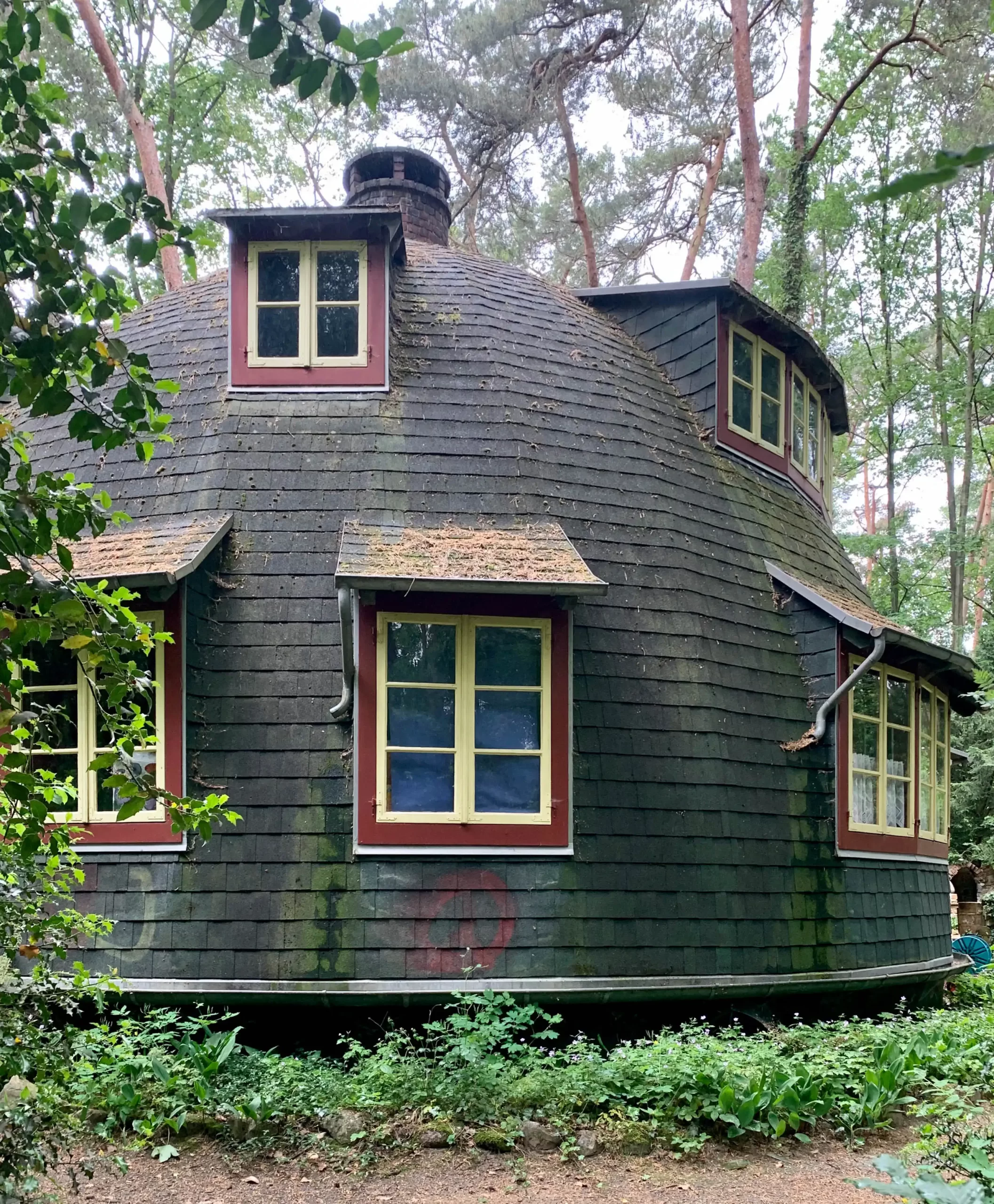
Käseglocke, 1926, built by Edwin Koenemann to a design by Bruno Taut. Photo: Daniela Christmann
1926
Built by Edwin Koenemann to a design by Bruno Taut
Lindenallee 13, Worpswede, Germany
The listed residence Käseglocke in the artists’ colony Worpswede was built in 1926 by Edwin Koenemann.
The construction of the Käseglocke (formerly called Glockenhaus) goes back to a design by Bruno Taut.
Background
In issue 2 of the magazine Frühlicht from the winter of 1921/1922, Taut had published designs for round houses on the occasion of the Central German Exhibition in Magdeburg (MIAMA 1922).
The model for Taut’s round houses was again a design by Peter Behrens for a small summer villa from 1903 that had been published several times.
In 1926, the writer and graphic artist Edwin Koenemann built the so-called Bell House in Worpswede as his own residence based on Taut’s designs, which he had seen in the magazine Frühlicht.
Bruno Taut probably knew of the existence of the house, because he visited the garden designer Leberecht Migge, a neighbor of Koenemann’s, a couple of times.
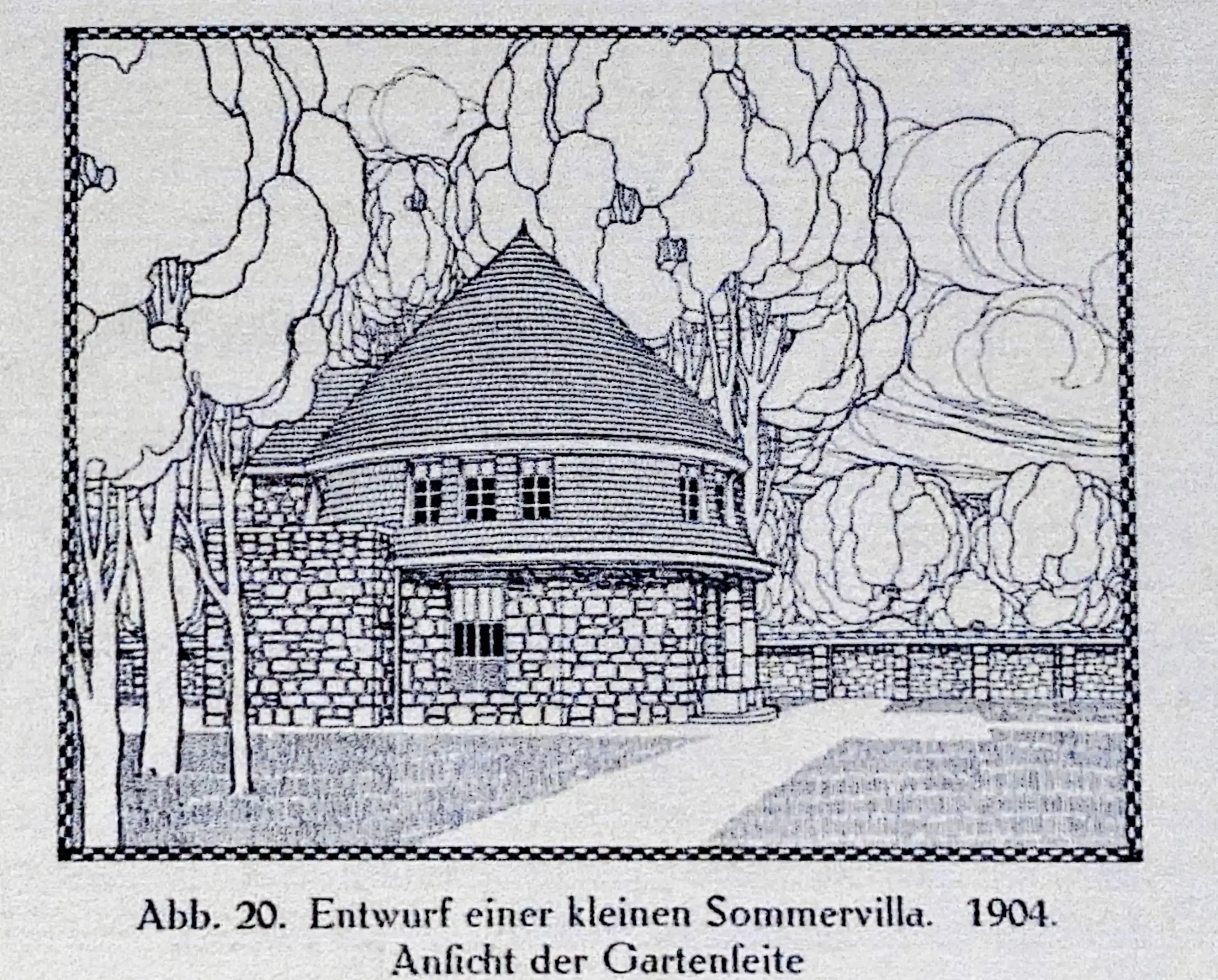
Peter Behrens: Design for a small summer villa, 1904, in: Fritz Hoeber: Peter Behrens, Munich 1913, p. 23
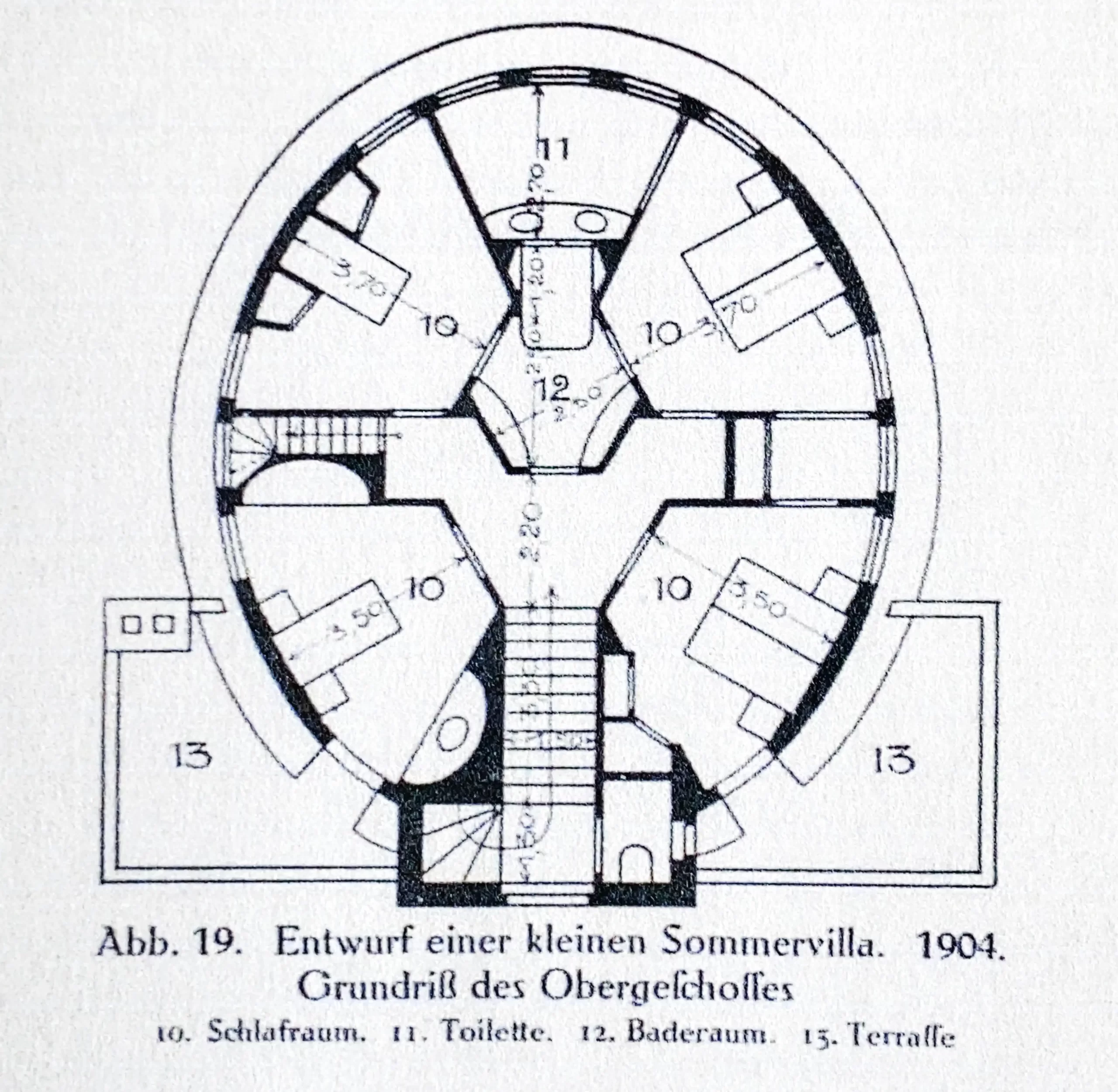
Peter Behrens: Design for a small summer villa, 1904, in: Fritz Hoeber: Peter Behrens, Munich 1913, p. 23
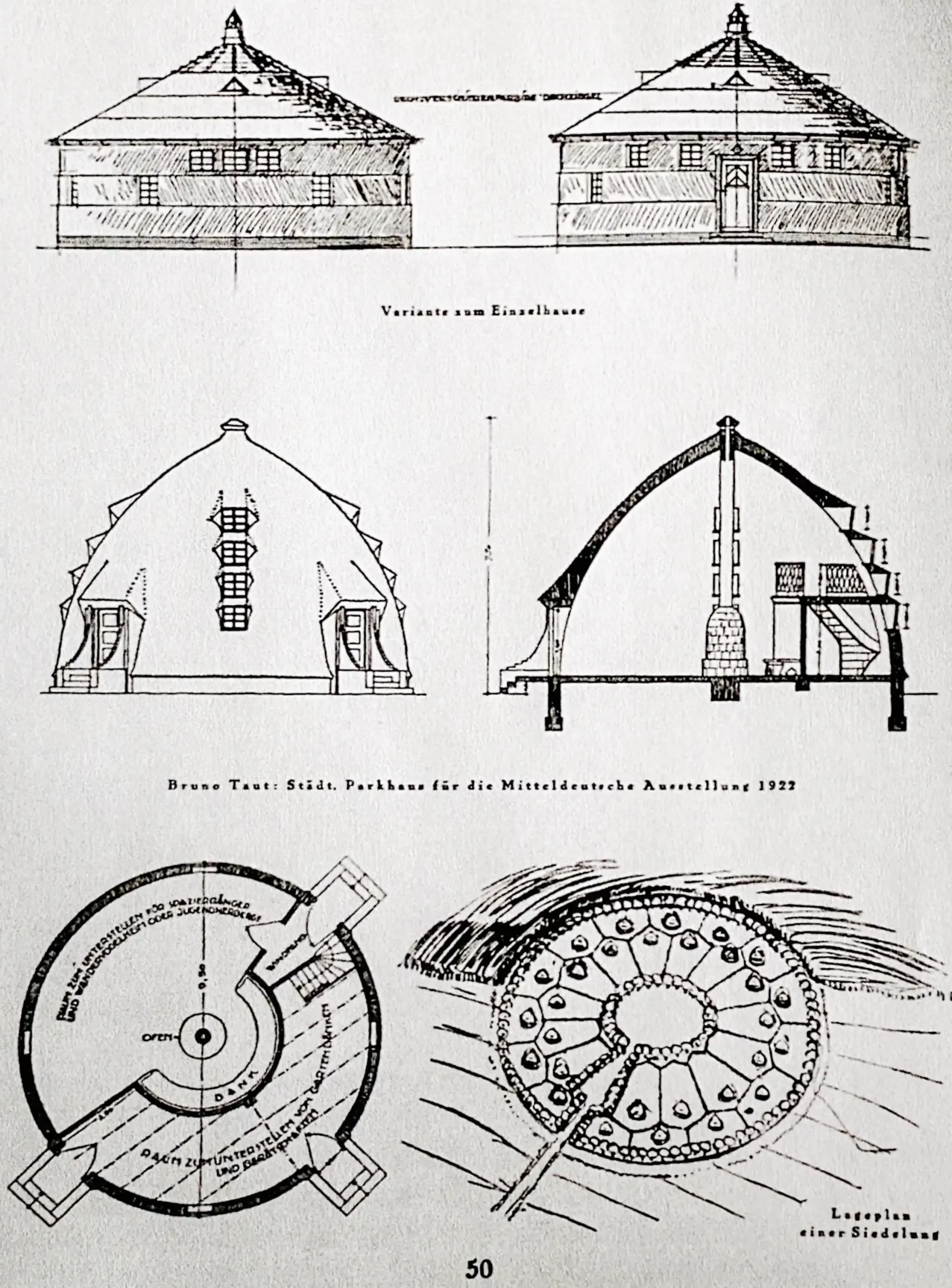
Bruno Taut: Städt. Parkhaus for the Mitteldeutsche Ausstellung 1922, in: Frühlicht, 1922, p. 50
Edwin Koenemann
Koenemann had come to Worpswede in 1908 with the aim of becoming an artist, together with his partner Frieda Rogge.
Soon after the erection of his unusual residence, he undertook guided tours for tourists both through his house and within the artists’ colony of Worpswede and the nearby Teufelsmoor.
Building
With a diameter of ten meters, the house has a living area of about 130 square meters and is centrally heated by a fireplace.
The bell-shaped wooden structure stands on a concrete foundation.
Inside, Koenemann realized a room layout according to his own ideas: The central room with fireplace on the ground floor is the focal point, next to it is the bedroom, kitchen and a small toilet.
On the upper floor there are two small guest rooms and a larger studio room.
After the builder Edwin Koenemann died in 1960, his third wife, the writer Editha Koenemann lived in the house until her death in 1993.
Willi Ohler
For many years, the upper floor of the house housed the studio of the ceramist Willi Ohler, who lived on the neighboring property.
Renovation
In 1995, the association Freunde Worpswedes e.V. succeeded in acquiring the Käseglocke and the 3,000 square meters of woodland surrounding it.
Between 1997 and 2003, the house was thoroughly renovated by the association and is now a listed building.
During the renovation of the building, the association came up with the idea of setting up a museum for Worpswede arts and crafts in the building.
Today, a collection of handicrafts with original pieces from the fields of glass, ceramics, metal, weavings, porcelain, as well as furniture by Heinrich Vogeler and Bernhard Hoetger, among others, is on display in the Käseglocke.

